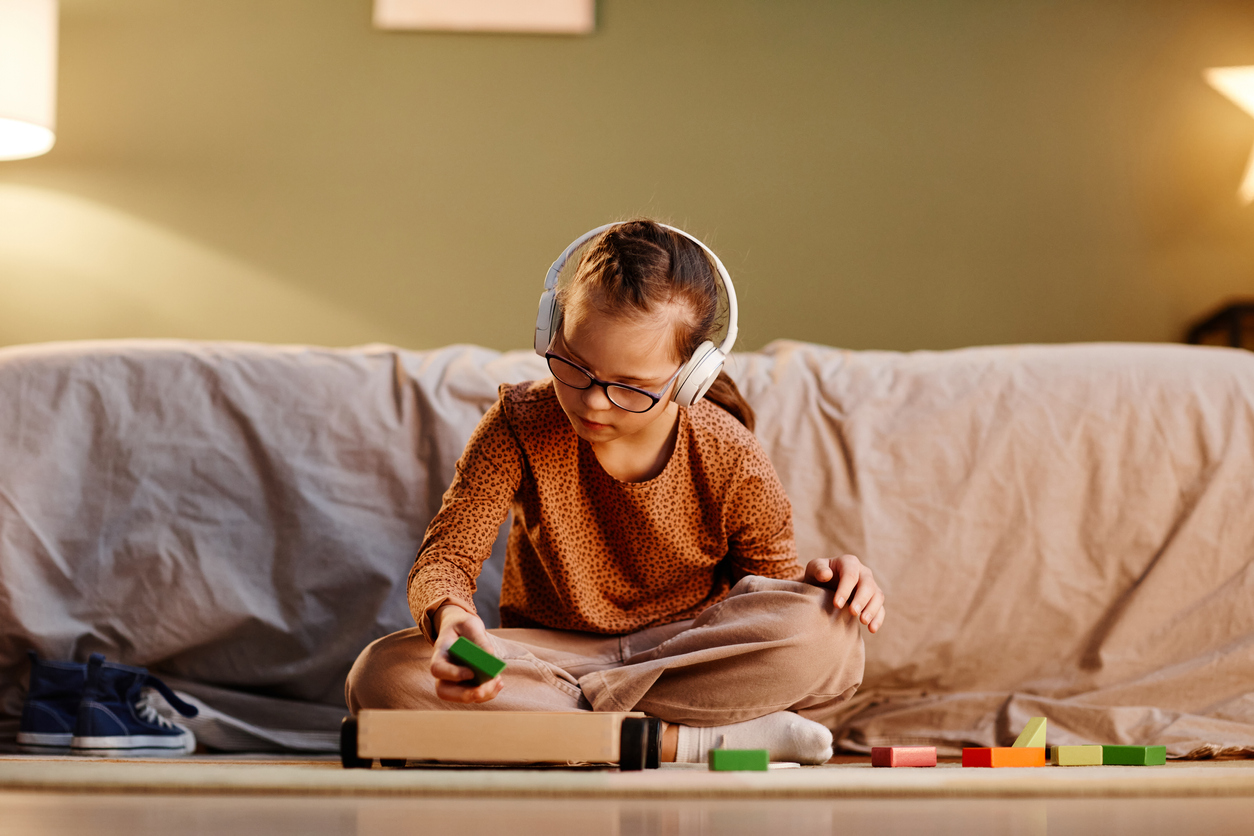In case you missed the first part of this series, be sure to read up on What is Sensory Processing?
What is Auditory Processing?
Auditory Sensory Processing is a natural human response that happens when the brain recognizes and interprets sounds. Auditory processing difficulties can affect the way words are interpreted, and subsequently, our response to those words. Oftentimes, those with auditory processing disorder may hear words out of order, or miss certain syllables, or may not hear some words at all. Similarly to the other senses we’ve discussed, there are two main categories to auditory processing disorder: Under-responsive and Over-responsive.
Under-responsive
Kids who are under-responsive to auditory sensory input can show signs like not noticing or being unbothered by background noise. They might not notice or hear when their name is being called at a distance or rooms away. Children who are under-responsive to auditory input seek sound more than others, so you may notice them humming, singing, or even talking to themselves excessively. Kiddos with auditory sensory difficulties might struggle following verbal directions, as well as struggling to discriminate between sounds in a noisy environment.
Over-responsive
On the other hand, over-responsiveness to auditory input can look like sensitivity to loud music or TV, which may result in constantly covering one’s ears. Kids who are very sensitive to auditory input can have negative or emotional reactions to loud sudden noises. You might notice over-responsive kiddos are easily distracted by background noises like dogs barking or a garbage truck driving by, which can completely divert their attention.
Don’t worry, if you notice your child experiencing over or under-responsiveness to auditory sensory, our occupational therapists have a few tips you might want to give a try for accommodating their processing difficulties.
Strategies for Over-responsive
- Use noise canceling headphones in loud environments
- Provide quiet or silent areas
- Reduce environmental noises like alarms or clocks that tick
- Anticipate noise and prepare your child with verbal warnings or leaving the environment temporarily
Strategies for Under-responsive
- Provide front of room seating to eliminate sound interference
- Use visual cues or write out instructions
- Allow time for child’s preferred auditory stimuli
- Slow your rate of speech when speaking to your child
Assistive technology in classrooms or educational settings can be a helpful tool for both under and over-responsive children. Assistive technology helps remove background noise and enhances a speaker’s voice, which in turn, helps promote auditory attention.
Stay tuned for our next blog article which will be discussing Gustatory sensory processing.
MeBe Occupational Therapy Services
To learn more about Sensory Processing, watch the recorded MeBe Learning Webinar, All About Sensory Processing.
If you’re ready to learn more about Occupational Therapy, Applied Behavior Analysis, Speech and Language Pathology or Feeding Therapy services at MeBe, contact us today.
For helpful tips from the MeBe therapy team, check out @mebefamily on Instagram and Facebook and visit the MeBe Family YouTube channel.

